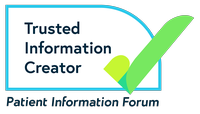What are genetic or inherited conditions?
If you have a genetic or inherited condition, it means you got the condition through genes from your relatives. You might also hear this called a:
- genetic disorder
- genetic disease
- inherited condition
- inherited disorder.
Some genetic blood conditions are very rare. Doctors usually try to identify them from a parent or newborn baby's blood sample.
In some cases, a genetic blood disorder can develop later in life. For example:
- chronic granulomatous disease
- mucopolysaccharide and related diseases (MPS)
- Wiskott-Aldrich syndrome — the rare blood condition Anthony Nolan had.
Daniel was only three weeks old when he started having nose bleeds. After lots of visits to the doctors, lots of tests and lots of waiting, we were finally told that he had Wiskott-Aldrich syndrome. Like Anthony, he needed a stem cell transplant to survive.
Georgie, whose son Daniel had a stem cell tranplant to treat Wiskott-Aldrich syndrome
Are there different types of inherited conditions?
In terms of inherited conditions doctors could treat with stem cell therapies, there are two main groups:
Primary immunodeficiency diseases (PID)
Within the group of primary immunodeficiency diseases (PID), there are many different types of disease, all with different symptoms. But all of these genetic diseases share one similarity – PIDs cause problems with the development of your immune system.
As your immune system protects you from infection, you can pick up infections more easily if you have inherited a PID. You might also hear them called ‘inborn errors of immunity’ (IEI).
Inborn errors of metabolism (IEM)
Inborn errors of metabolism (IEM) make up a rare group of inherited diseases that cause problems with your metabolism. Your metabolism means the chemical reactions in your body’s cells that allow you to create energy from food.
If you have inherited an IEM, your metabolism doesn’t work as well as it should. This can cause serious health problems, like:
- weight loss
- seizures
- low energy
- slower growth and development.
Treatments for genetic disorders
Treatments for genetic disorders, whether they affect your blood or not, will usually depend on:
- the genetic condition you have
- how severe your condition is
- the types of symptom you’re dealing with.
In many cases, doctors will try to use different types of medication to treat genetic disorders. They can also use gene therapies, some of which involve using stem cells.
PID treatment
For a PID, treatment aims to control your symptoms and minimise their effect on your quality of life. Doctors might consider gene therapies if your condition becomes unmanageable, in terms of experiencing pain and dealing with symptoms.
IEM treatment
For an IEM, treatment aims to manage your symptoms alongside actions like changing your diet. Doctors might consider organ transplant and gene therapies depending on your symptoms and quality of life.
If other types of treatment have not worked for an inherited condition, doctors might offer an allogeneic stem cell transplant — this means someone donates their stem cells to you. Doctors can treat some genetic conditions with an autologous stem cell transplant – which means using your own stem cells.
How many people have had a stem cell transplant to treat a genetic or inherited condition?
In the UK in 2023:
- 76 people had a stem cell transplant to treat a PID.
- 24 people had a stem cell transplant to treat an IEM.
As doctors can detect many inherited conditions at birth, small children sometimes need to get stem cell transplants. If you’re a parent supporting a child through a transplant, please find information and support on our page My child is having a transplant.
Where to find support for geentic disorders and diseases
Anthony Nolan supports people with all sorts of conditions that might use stem cells or cell therapies for treatment. But other organisations support people affected by specific blood disorders, some of which we can inherit from birth.
To find out more about symptoms, diagnosis and treatments for different genetic disorders, you can visit:
- The Immune Deficiency Foundation
- The Immune Deficiency Foundation – Wiskott-Aldrich syndrome (WAS)
- MPS Society — for mucopolysaccharide and related diseases (MPS)
- CGD Society — for chronic granulomatous disease
To find advice and support for living with a genetic disorder, you can visit:

My blood cells couldn’t fight infections, so I couldn’t join in with things – I couldn’t go outside when the grass was cut, I couldn’t go on playgrounds that had bark chips or near leaves, because of the fungal spores. I couldn’t go camping or into caves or on building sites – I basically couldn’t do anything fun!
Alex, who had a bone marrow transplant to treat his chronic granulomatous disease (a type of PID). You can read his story on our blog.
